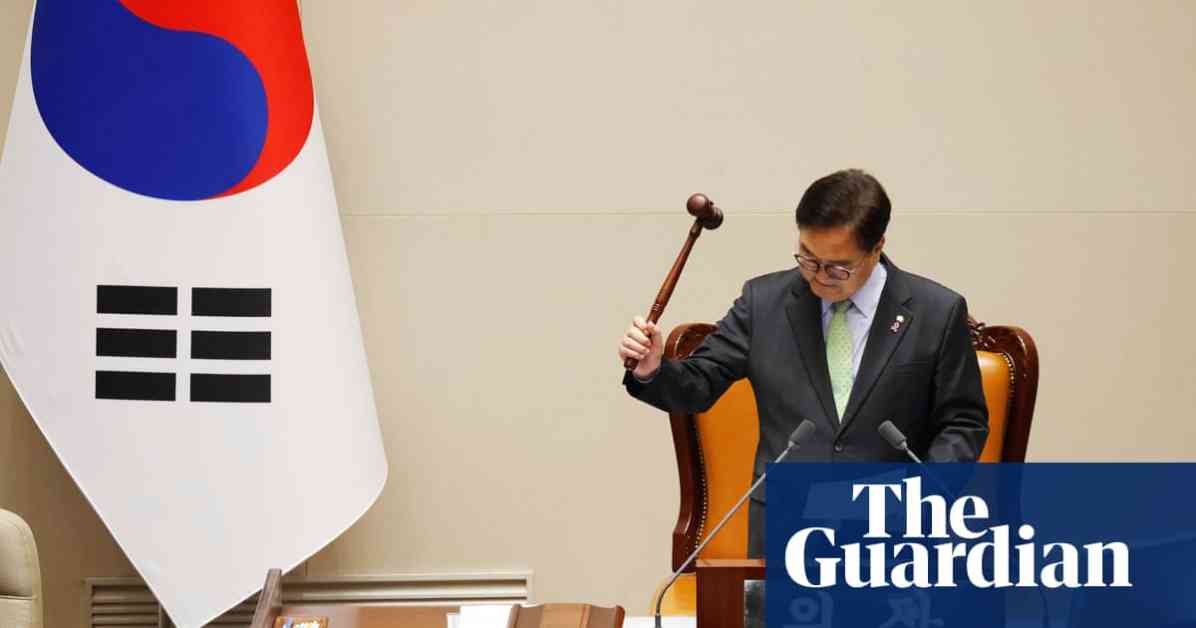South Korean President Yoon Suk Yeol has narrowly escaped an impeachment motion after a dramatic walkout by members of his People Power party (PPP) sabotaged the crucial vote in the national assembly. The motion, triggered by Yoon’s controversial declaration of martial law earlier in the week, required a two-thirds majority of 200 votes to proceed, a threshold that was not met due to the boycott.
The unexpected turn of events unfolded on Saturday, leaving the assembly in chaos and uncertainty surrounding Yoon’s political future. Despite initial indications that some PPP members might defect and support the impeachment, the party rallied behind their embattled president at the last minute, thwarting the opposition’s efforts.
Boycott Derails Impeachment Effort
The vote boycott by PPP lawmakers, which occurred just before the televised vote, left the assembly in disarray, with angry protests erupting both inside and outside the chamber. The absence of crucial votes prompted the assembly speaker to declare the motion invalid, much to the disappointment of opposition lawmakers and protesters who had gathered in the hopes of seeing Yoon ousted.
Yoon’s Apology and Political Fallout
Hours before the failed impeachment attempt, Yoon issued a televised apology for his ill-fated decision to impose martial law, acknowledging the public outrage and pledging to accept any legal or political consequences. The apology, however, did little to quell the growing discontent among opposition parties and the general populace, who view Yoon’s actions as a threat to democracy.
Turmoil and International Concerns
The political turmoil in South Korea has raised concerns among key diplomatic partners, including Japan and the US, as the country grapples with a leadership crisis. Opposition lawmakers have accused Yoon of staging a self-coup through his martial law declaration, further complicating the already tense political climate.
Despite the setback in the impeachment process, opposition parties remain determined to hold Yoon accountable for his actions, with the possibility of introducing a second motion looming on the horizon. The ongoing saga underscores the deep divisions within South Korean politics and the challenges facing the nation as it navigates through a turbulent period of uncertainty.
In conclusion, Yoon’s narrow escape from impeachment highlights the precarious nature of his presidency and the deep-seated issues plaguing South Korea’s political landscape. As the country grapples with the aftermath of the failed motion, the future remains uncertain, with the specter of further political upheaval looming large.












